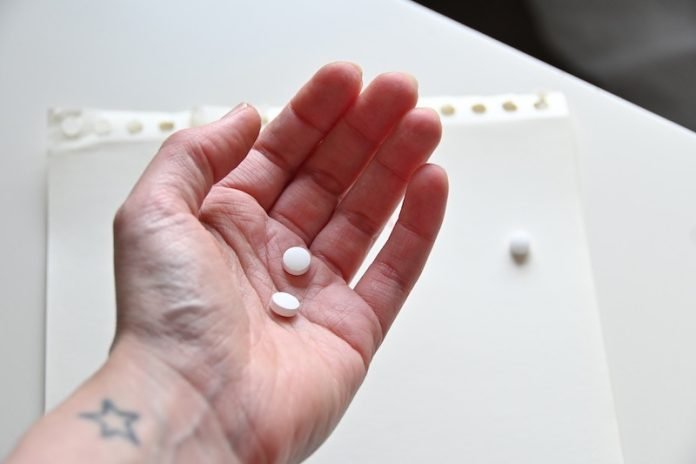
Parkinson’s disease is a degenerative disorder that affects the nervous system. People with Parkinson’s experience symptoms such as tremors, stiffness, and difficulty with movement.
Currently, there is no cure for Parkinson’s disease, but researchers are constantly looking for ways to slow its progression.
In a recent study from the UCL Queen Square Institute of Neurology, scientists have discovered that a drug called ambroxol has the potential to slow the progression of Parkinson’s disease.
Ambroxol is a drug that is already used to treat respiratory conditions by promoting the clearance of mucus, easing coughing, and reducing inflammation.
The study found that ambroxol is able to effectively reach the brain and increase levels of a protein known as GCase (glucocerebrosidase).
GCase allows cells to remove waste proteins, including alpha-synuclein, which is a protein that builds up in Parkinson’s and is thought to be important in its cause.
By increasing GCase levels, ambroxol helps cells to remove this protein more effectively.
The study also found that ambroxol was safe for people with Parkinson’s and was well-tolerated.
The researchers are now planning a phase 3 clinical trial, which will involve 330 people with Parkinson’s across 10-12 clinical centers in the UK.
The trial will be placebo-controlled, and participants will take ambroxol for two years.
The effectiveness of ambroxol will be measured by its ability to slow the progression of Parkinson’s using a scale that includes quality of life and movement.
If this clinical trial is successful, it could represent a significant breakthrough in the treatment of Parkinson’s disease.
It will be the first time that a drug specifically applied to a genetic cause of Parkinson’s disease has reached this level of trial, and it represents ten years of extensive and detailed work in the laboratory and in a proof of principle clinical trial.
For those who are interested in preventing Parkinson’s disease, there are also studies that show that Vitamin E and Vitamin D could be beneficial.
Vitamin E may help prevent Parkinson’s disease, and Vitamin D could benefit people with Parkinson’s disease.
Additionally, there are other recent studies that show promising results for treating Parkinson’s disease, such as a new way to treat Parkinson’s disease and the potential benefits of flavonoid-rich foods.
Overall, this research on ambroxol and its potential to slow the progression of Parkinson’s disease is exciting news for the Parkinson’s community.
While there is still much to learn and further research to be conducted, the potential for a breakthrough in the treatment of Parkinson’s disease is within reach.Top of FormBottom of Form
While there is no known cure for Parkinson’s disease, there are some lifestyle changes and habits that may help reduce the risk of developing the disease:
Exercise regularly: Studies have shown that regular physical exercise, such as aerobic exercise, resistance training, and yoga, can help reduce the risk of developing Parkinson’s disease.
Eat a healthy diet: Eating a diet rich in fruits, vegetables, whole grains, and lean protein sources, while limiting processed and high-fat foods, may help reduce the risk of developing Parkinson’s disease.
Get enough sleep: Getting enough quality sleep on a regular basis is important for overall health, and some studies have suggested that poor sleep may increase the risk of developing Parkinson’s disease.
Avoid toxins: Exposure to certain toxins, such as pesticides and herbicides, has been linked to an increased risk of Parkinson’s disease. Try to limit exposure to these substances as much as possible.
It’s important to note that while these lifestyle changes may help reduce the risk of developing Parkinson’s disease, they are not a guarantee and the disease can still develop in individuals who follow a healthy lifestyle.
If you care about brain health, please read studies about vitamin D deficiency linked to Alzheimer’s and vascular dementia, and extra-virgin olive oil could boost brain function.
For more information about brain health, please see recent studies about antioxidants that could help reduce dementia risk, and exercise hormone halts Parkinson’s disease symptoms.
Copyright © 2023 Knowridge Science Report. All rights reserved.



